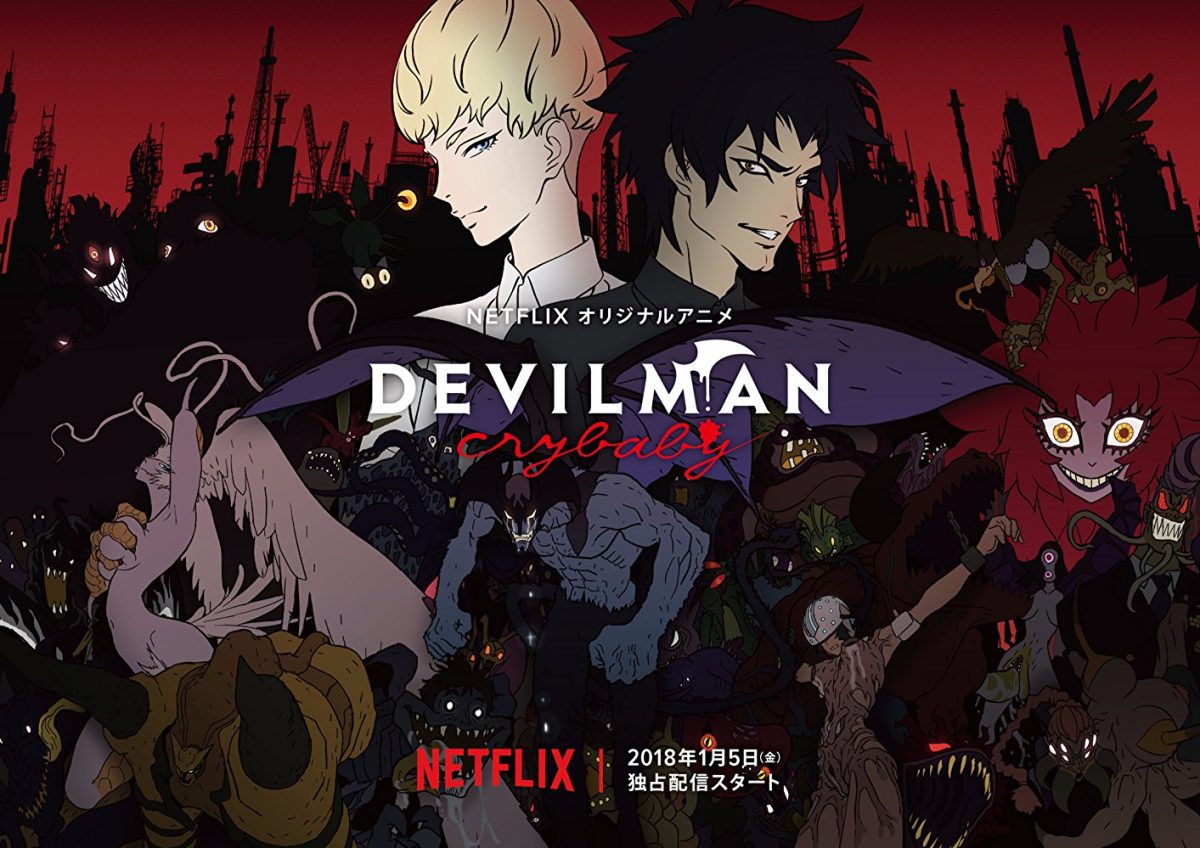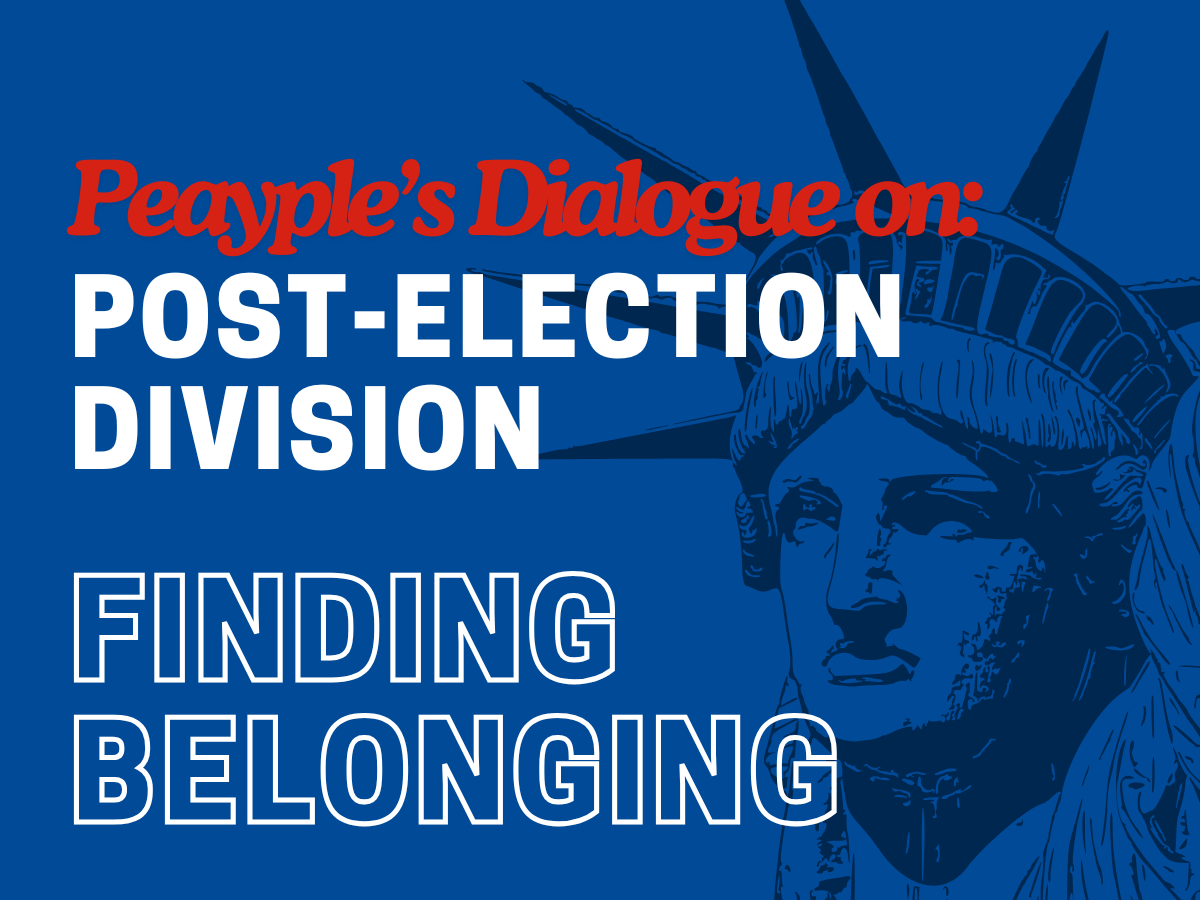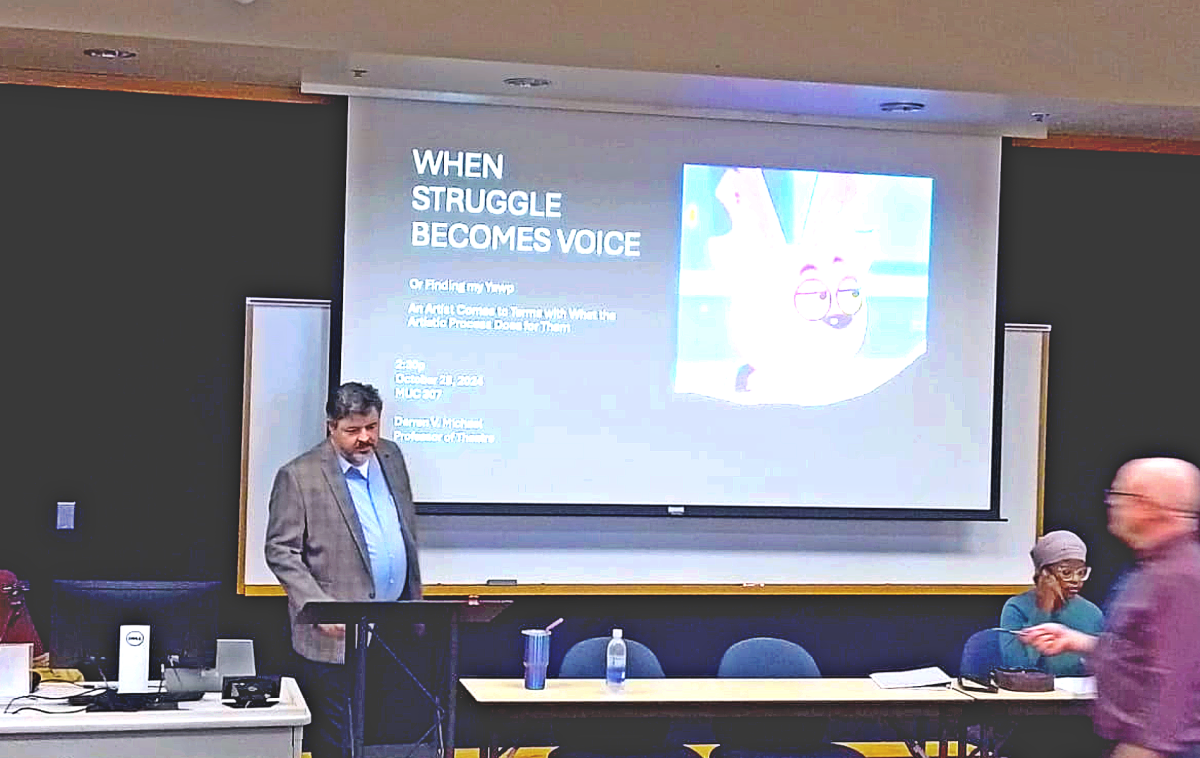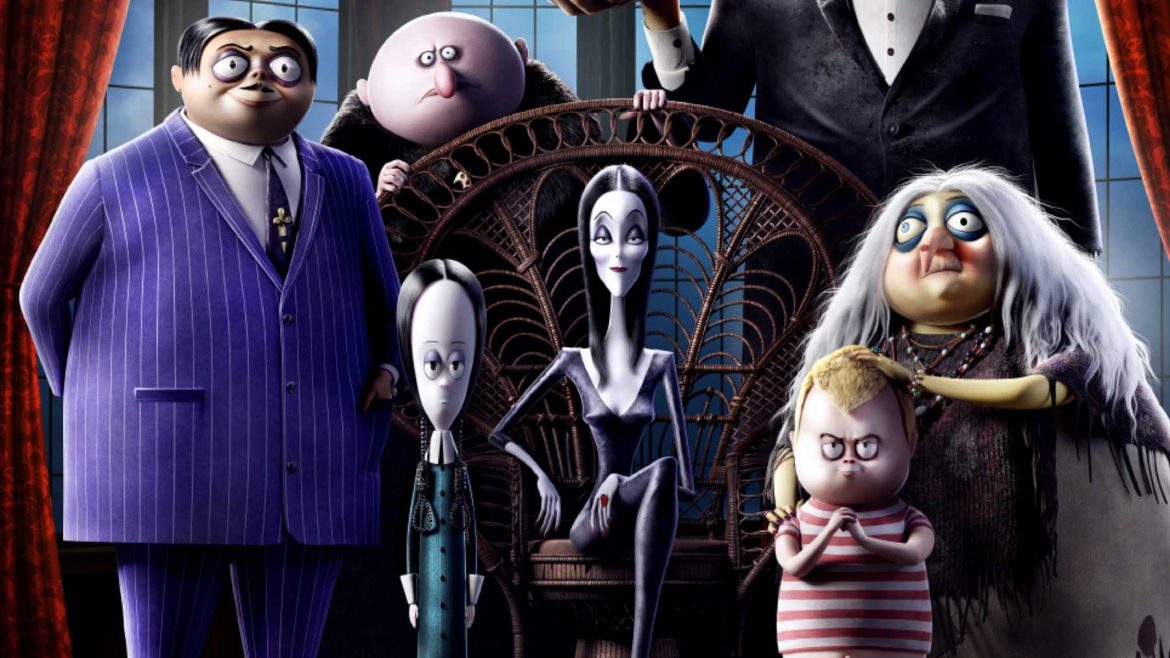Devilman Crybaby is a Netflix original series created by Masaaki Yuasa. The series centers on Akira Fudo, an empathetic and emotional track runner who is living with the family of his parents’ friends. His childhood friend, Ryo Asuka, returns to inform him of an influx of ancient demons bent on taking over the world. His attempts to expose them results in Akira merging his body with that of a demon named Amon. He transforms into Devilman, a hybrid creature that possesses many demonic qualities, but still retains the heart of a human. As he strives to protect those closest to him from the evil from beyond, he comes to realize humanity may have many equally monstrous undertones, as well.
As to be expected from the work of Masaaki Yuasa, his visual style and storytelling are surreal. This anime is littered with graphic depictions of sexuality, violence and grotesque body horror. However, it never feels too gratuitous or glorified. Yuasa goes out of his way to make sure you feel uneasy after watching such bacchanalian chaos. For example, the sex portrayed in the series is less sensual and more uncomfortable and violent, including several rape scenes.
The writing, though, is where the series fumbles. Devilman Crybaby is an adaptation of the 1972 manga series, Devilman. Prior to its Netflix debut, Devilman was adapted into two manga spin-offs, a television series, three novel series, and two original video animations.
Attempting to encapsulate four decades’ worth of story within the span of 10 episodes will undoubtedly be flawed. While the commentary on what defines a human and a monster is intriguing, the world-building is fairly convoluted at times, and whenever a character explains something essential to the story, they deliver it in monologues as opposed to realistic dialogue. Also, as a result of tweaking the original characterizations, some characters are not as developed or given the proper treatment as they deserve. As a result, the finale may feel anticlimactic and undeserving to some.
That being said, what carries the series through its clunky writing are the characters.
Befittingly, a series titled Devilman Crybaby is packed with emotional resonance. The characters themselves are not especially complex, but they are similar to how characters from a classic Disney film are not complex; they hearken to what we emotionally want to see rather than what we should logically expect. Each character expresses genuine passion, whether it be for their aspirations or those around them. A lot of them share a significant camaraderie amongst each other, so when you see something fracture their relationships, it is gut-wrenching to watch.
Devilman Crybaby may not be the next Neon Genesis in terms of visceral religious commentary, but it serves as a promising sign for Netflix’s future endeavors in the realm of anime. It is a kinetic kaleidoscope of bizarre humor, experimental animation and a story populated by a cast of fun characters. In case you are still uncertain about Netflix producing original anime series, I would recommend giving this a watch and coming to your own conclusions.












